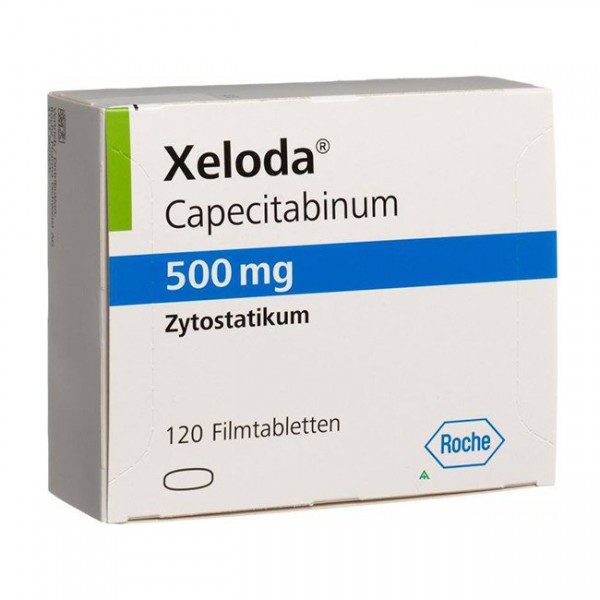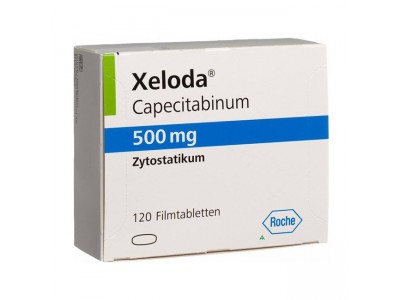Xeloda, also known by its generic name Capecitabine, is a medication commonly prescribed to treat various types of cancer, including breast, colon, and rectal cancer. It belongs to a class of drugs called antimetabolites and is primarily used in chemotherapy. The active ingredient in Xeloda is capecitabine, which works by interfering with the growth and spread of cancer cells in the body.
Xeloda is taken orally, typically in the form of pills or tablets, making it more convenient for patients than traditional intravenous chemotherapy. Once ingested, the body converts capecitabine into 5-fluorouracil, an active substance that targets and destroys cancer cells. This drug is particularly effective in cases where cancer has metastasized or spread to other parts of the body.
The dosage of Xeloda can vary depending on the type of cancer being treated, the patient's overall health, and other individual factors. Typically, it is taken in cycles, with periods of treatment followed by rest to allow the body to recover from potential side effects. Common side effects of Xeloda may include nausea, vomiting, diarrhea, hand-foot syndrome, and fatigue.
Before starting Xeloda treatment, it's crucial for patients to discuss their medical history and any other medications they are taking with their healthcare provider. Xeloda may interact with certain drugs, potentially affecting its effectiveness or causing adverse reactions. Regular monitoring and blood tests are often necessary during the course of treatment to ensure the drug is having the desired effect.
Overall, Xeloda is a valuable tool in the fight against cancer, offering a more accessible and convenient option for many patients while still delivering effective treatment against the disease. In the next response, I will provide additional information about this medication.
Xeloda, or Capecitabine, is used to treat specific cancers that have not responded to other treatments or have metastasized. Breast cancer, particularly in combination with other chemotherapy agents, is one of the conditions for which it is often prescribed. For colon and rectal cancer, it may be used as part of adjuvant therapy following surgery.
One of the advantages of Xeloda is its oral administration, eliminating the need for regular clinic visits for intravenous treatments. Patients can take the medication at home, which can enhance their quality of life during treatment.
However, Xeloda does have potential side effects, and patients should be vigilant for any signs of adverse reactions. Common side effects, such as diarrhea and hand-foot syndrome, are usually manageable with medical guidance. It is essential for patients to report any severe or persistent side effects to their healthcare provider to adjust the treatment plan accordingly.
Additionally, Xeloda is not suitable for all patients, and healthcare providers will assess each case individually. It's important for individuals to communicate openly with their medical team to ensure the best treatment approach.
In summary, Xeloda, or Capecitabine, is a vital option in the arsenal of chemotherapy medications, offering convenience and effectiveness in the treatment of certain cancers. While it comes with potential side effects, proper monitoring and management by healthcare professionals can help patients achieve the best possible outcomes.
There are no reviews for this product, be the first to leave your review.

No questions about this product, be the first and ask your question.





